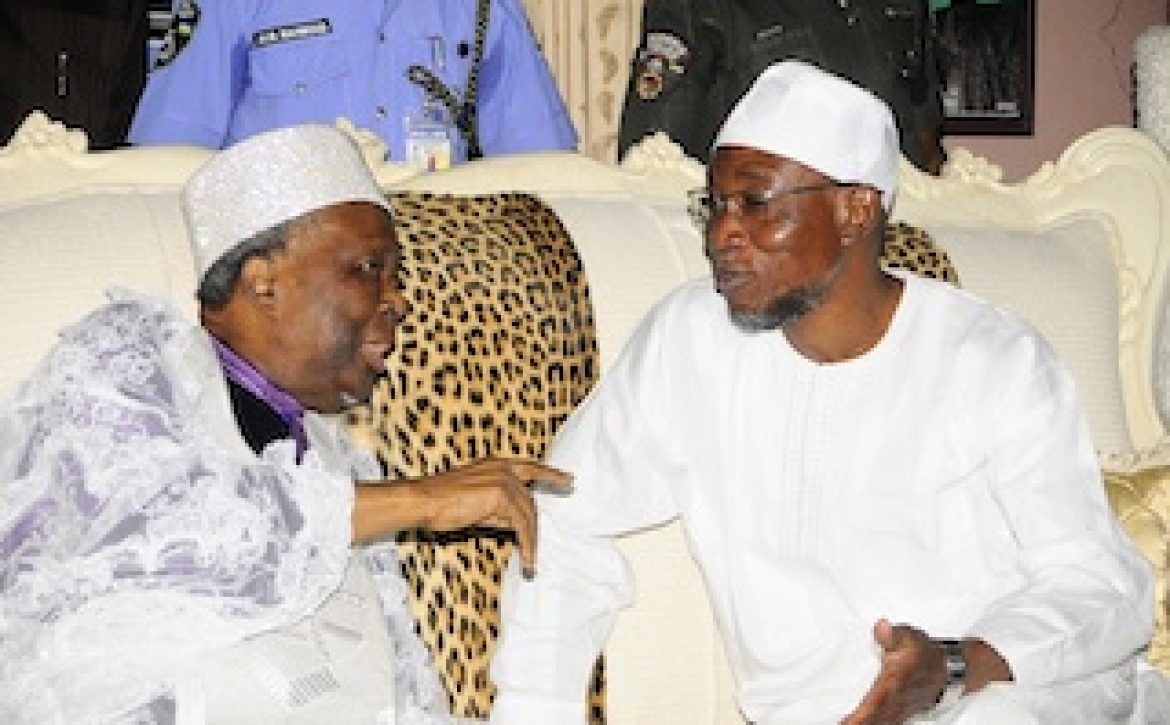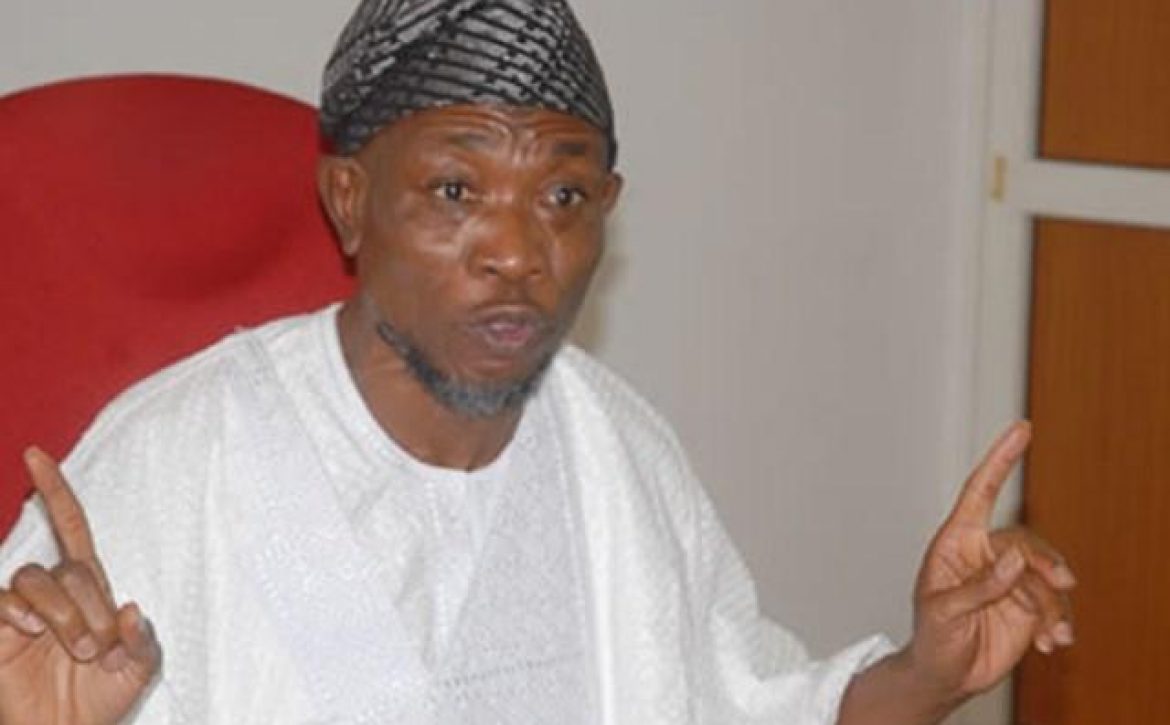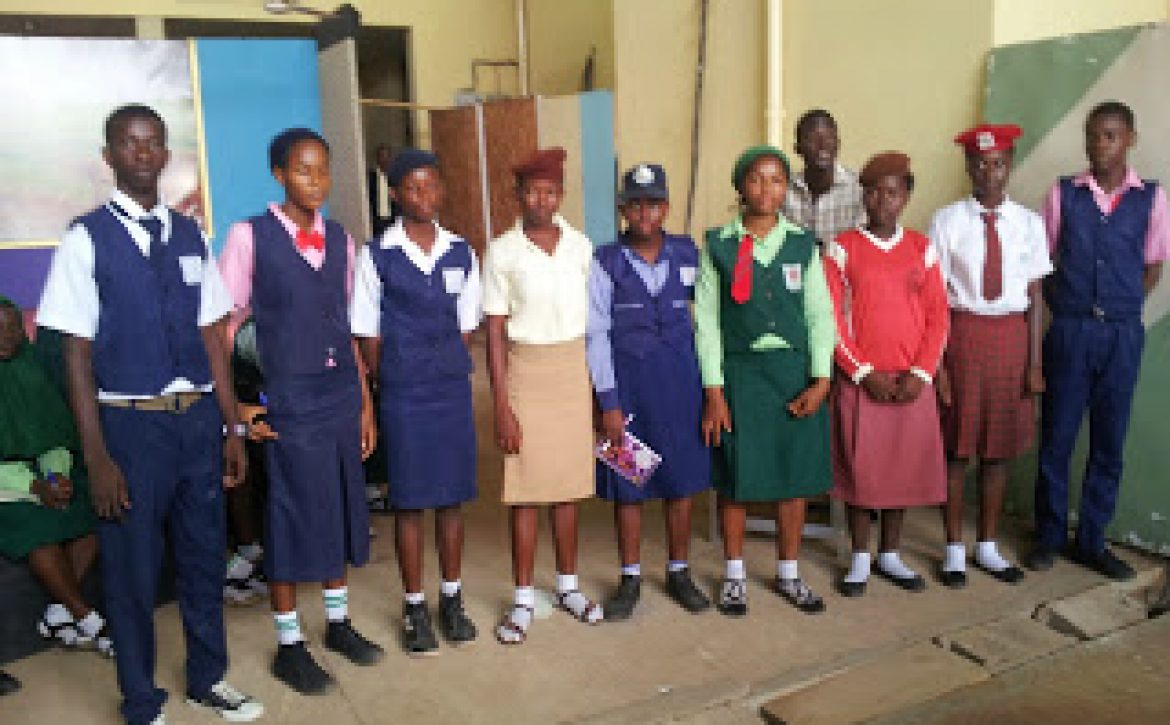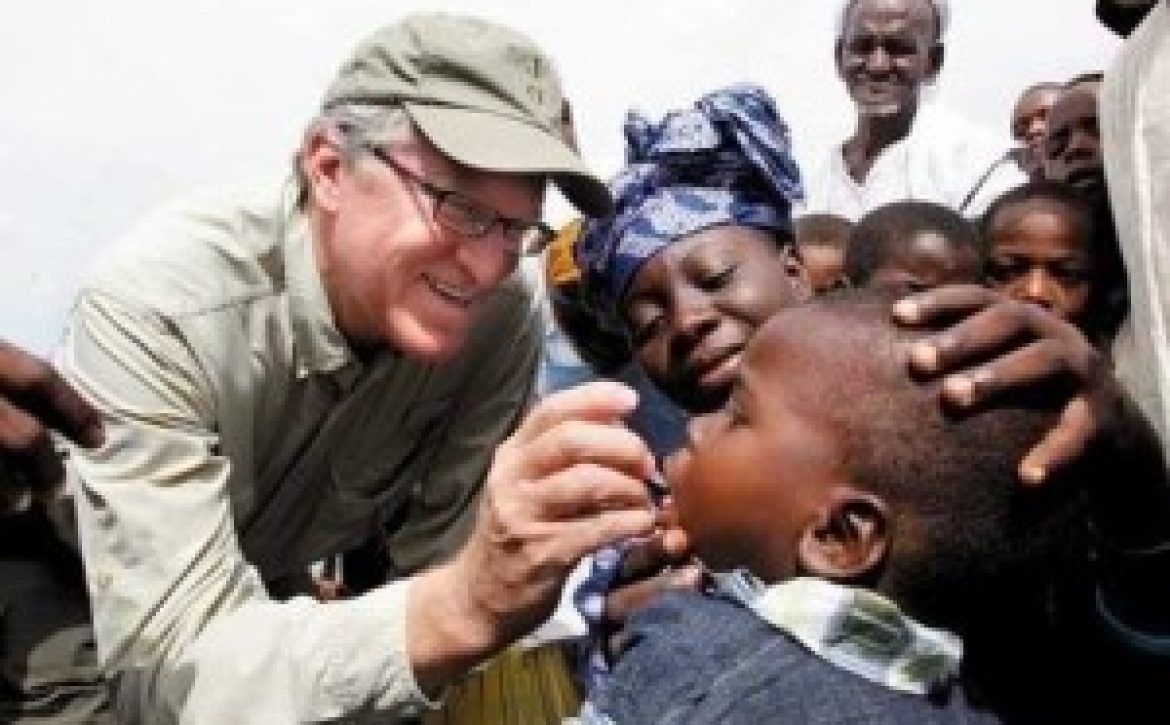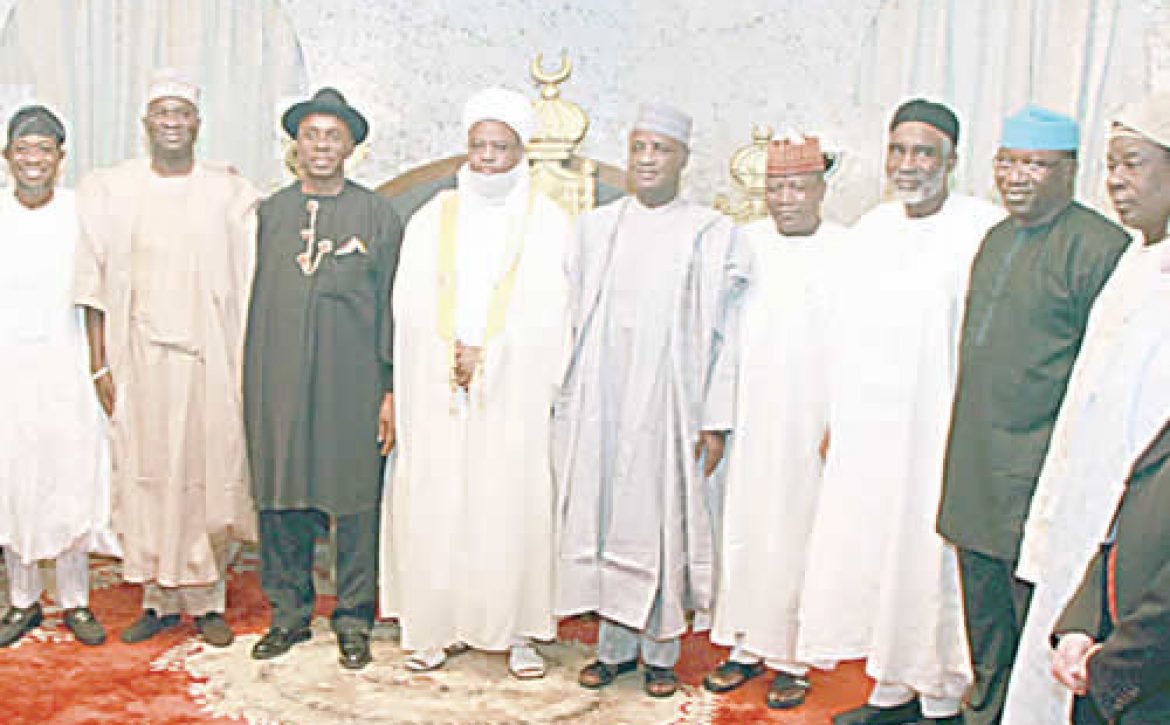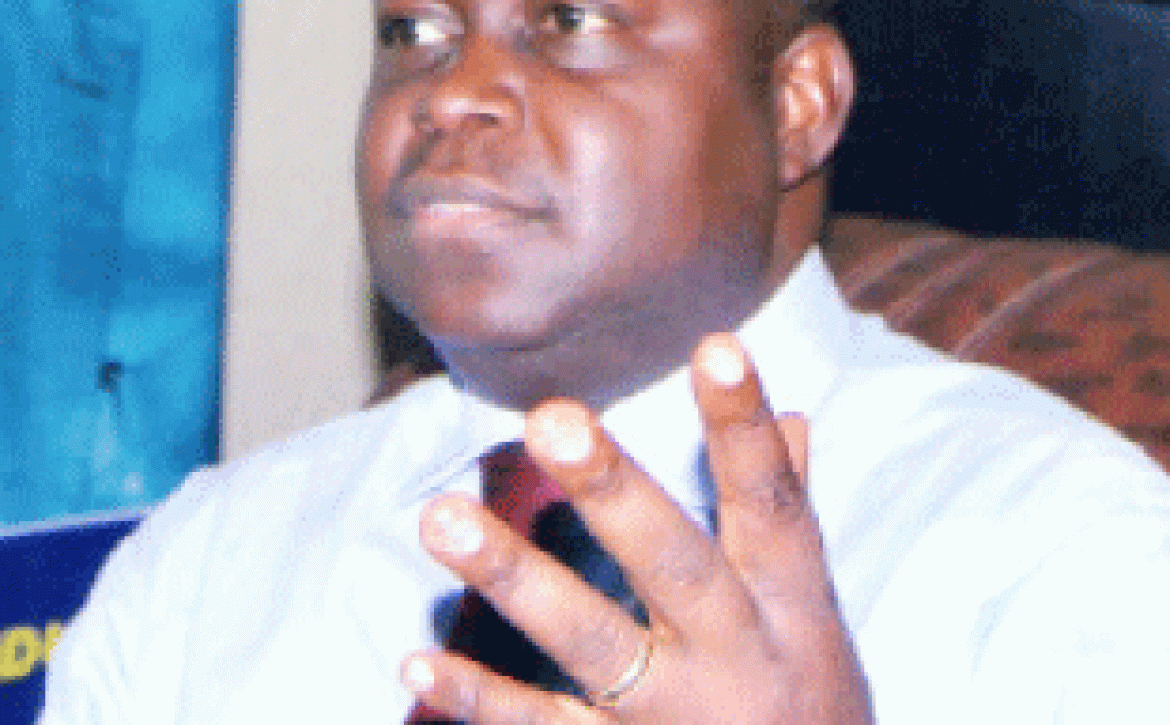 Special Adviser to the Governor on Local Government and Chieftaincy Affairs, Bisi Odewumi has disclosed that there would be more developmental projects and rapid socio-urbanisation in all the areas where new local governments would be sited across the state.
Special Adviser to the Governor on Local Government and Chieftaincy Affairs, Bisi Odewumi has disclosed that there would be more developmental projects and rapid socio-urbanisation in all the areas where new local governments would be sited across the state.
Odewumi made this disclosure while fielding questions from Journalists in Osogbo as he noted that the state government was committed to creation of new Local Government Areas before the end of the year.
“When the new Local Governments are created, the development is not going to be restricted to either the newly created or the old ones, but there is going to be overall development across board in all the local governments in the state of Osun,” he said.
While speaking on how the government would cope with the funding of the proposed new Local Governments, Odewumi said that those that would be at the helm of affairs in the newly created Local Governments would have to work more on how to improve their respective internally generated revenue to stand the test of time.
He also said that when the present government came on board, the internally generated revenue it met was N300million but has now risen to very close to N2 billion.
Odewumi, however, advised those that would be saddled with the responsibility of managing the affairs at the local levels to improve on their Internally Generated Revenue so that they would not be running helter-skelter to the government for funds.
DAILY NEWSWATCH
Category: News
Enthusiastic students of the State of Osun acknowledging the presence of Governor Rauf Aregbesola, during his visit to the on-going School projects within the premises of Akin-Orun Grammar School, Ikirun in Boripe/Ifelodun and Odo Otin Local Government, in the State on Tuesday 19-11-2013






Alaafin of Oyo, Oba Lamidi Olayiwola Adeyemi, has canvassed for a second term in office for the Governor of the State of Osun, Ogbeni Rauf Adesoji Aregbesola, just as he sought for Yoruba cultural re-awakening.
Addressing members of ‘Oyopeju’, which is an acronym for 18 compounds in Osogbo town that migrated from Oyo in the historical past, who turned out Saturday in their thousands to welcome him at Freedom Park, Railway Station, Osogbo, Adeyemi said: “I am planning to call a meeting of all the Yoruba royal fathers and speak on the giant strive of Governor Aregbesola, which has completely transformed Osun State. A good orange should be taken more than once.”
The monarch called for continuous support and cooperation of all monarchs and subjects for Aregbesola’s administration.
He challenged critics of his (Aregbesola) administration to proffer alternatives towards provision of free uniforms and electronic learning device called ‘Opon Imo’ (tablet of knowledge), which are ingredients of education reform policy.
On cultural re-awakening, the monarch said:
“In Yoruba land, royalty cannot go into extinction. “The Yoruba that is widely spoken today is of Oyo stock, which Rev Samuel Johnson documented in1882. It was Oyo that started the cabinet system, which the Europeans later copied and developed.”
However, President of Oyopeju, Alhaji Ajadi Badmus, welcomed Aregbesola, who was by represented by his wife, Alhaja Serifat, the deputy governor, Chief (Mrs) Grace Titilayo Laoye-Tomori, Oba Adeyemi, Ataoja of Osogbo, Oba Jimoh Olanipekun and other prominent traditional rulers present.
Badmus narrated the historical migration of Oyo descents to Osogbo as traders and merchants until their absorption and integration into the society, promising to revive all innate abilities of Oyo descents towards re-awakening cultural glorious past for future greatness.
Laoye-Tomori was full of gratitude to all that were present as one of the highlights of the event was wearing of ‘sanyan’ type of ‘aso oke’ by almost everybody present including her and the first lady.

He was more or less a sole administrator of the state for the first six months in the state as he simply refused to appoint commissioners and aides to work with him.
By the time the list was eventually sent to the State House of Assembly for confirmation, he had ensured that loyal men were at the helm of affairs in the Assembly.
His approach to issues has consistently been different but his series of reforms in the education sector has created more enemies for the governor than friends. Many have criticised the moves as it appeared as if the whole state was in turmoil.
But the dust seems to be gradually settling as indigenes and opinion leaders have taken time to study the new model being introduced by the governor. Combing the schools in the length and breath of the state is revealing. From Iwo to Ila, Ile Ife to Ejigbo, Ede to Ikirun and the entire state, there appears to be a fresh air breathing into the schools with some new things happening.
On the economic front, the school feeding scheme has helped to improve the production capacities of farmer-suppliers of farm produce in the state. It has empowered 3,007 women who were appointed food vendors to serve nutritious meals to pupils on school days.
By the middle of this year, the National Bureau of Statistics had said Osun emerged number one in public school enrolment in the country.
Osun Government also insisted that the re-classification became necessary to avoid multiplication of mushroom schools that compete for scarce resources of the state, to pull resources together to enjoy economy of scale for maximization of the state resources.
According to government, it is more economical to cater for 300 pupils/students in one school than in three schools of 100 pupils/students each. The erstwhile school system in the state has schools with as low as 30 pupil’s total enrolment in primaries one to six.
Other reasons for the exercise are to remove financial burden of education completely from parents through provision of modern facilities, furniture and improved funding; to democratize education and provide equal opportunities for pupils without discrimination; to make public schools comparable to the private schools in terms of facilities and to reduce pupils/students-to-teacher ratio from the current abnormal rate of 60-100 students to a teacher to the UNESCO standard.
On the features of the new school system, the old primary and secondary school are reclassified into Elementary, Middle and High schools.
The Elementary School is for pupils in Grades 1-4 and in the age range of 6-9 years. These schools are to be neighbourhood schools, not to be too far from areas of residence, trade and work places of parents with enrolment at maximum capacity of 900 pupils in cities and big towns but those in rural communities may have lesser population.
The Middle School have students in Grades 5-9 classes; age range of 10-14years to be sited within maximum of 2-3 kilometers from where pupils live and enrolment of 900-1000.
The High school will have students in Grades 10-12 classes; age range of 15-17years, enrolment will be 3000; a 3-schools in 1 complex at 1000 students per school.
The Aregbesola administration has taken a number of measures to address the dearth of teachers in specific subject areas and geographical locations within the state as part of its total overhaul of education sector.
The deployment of 6,000 OYES cadets and voluntary teachers into public schools; 600 teachers were recruited and posted to specific Local government areas of the state.
Recruitment of over 3000 teachers into the public primary schools; on-going recruitment exercise for another set of over 3000 secondary schools teachers and SUBEB promoting a total of 6,777 teachers in the primary schools sub-sector in 2012.
One of the reasons given for the heat generated by the ongoing reforms include the alleged possible loss of identities by some schools, the government held that in Osun and all over the country, public schools are 100% owned, staffed and funded by the state government.
The use of hijab by female Muslim pupils had also raised concerns among Christians. But just as the governor could not say that Muslim pupils must not wear hijabs, it also could not legislate against it as the government reminds that the Constitution of the Federal Republic of Nigeria says that no student can be discriminated against on the basis of his parents’ religious belief and mode of worship.
As part of its efforts to restore the old glory to education sector of the state, Osun is determined to give the students total, qualitative and functional education through resuscitation of curricular activities in schools. This is with the view to giving students all round education for their overall development.
Worried by the religious dimensions being introduced into the whole saga, eminent religious leaders had come up with their positions on the matter saying that the beauty of the reforms being introduced should not be tainted with religious colourations.
A journey through the state and the schools indicate that majority of the schools being upgraded and rebuilt completely are actually those established by the missionaries of the old. This has gone on without any attempt by the government to make any school hitherto belonging to the Christian Missionaries to change their outlook even though the ownership still resides with the government that funds them.
General Evangelist of Christ Apostolic Church Worldwide, Pastor Samuel Kayode Abiara who had appealed to Christians to be patient with Aregbesola on the reform, said: “I want to use this opportunity to appeal to Christians in the state to be patient with the government, if one wants to be fair, Aregbesola meant well for our children, when I saw the Opon-Imo, I was amazed because the tablet is a school on its own. Our Christian brothers and sisters should be patient, they should always ask for clarification on issues if it is not clear to us.” Prophet Abiara stressed.
The Ooni of Ife, Oba Okunade Sijuade while comparing Aregbesola’s reform to that of Obafemi Awolowo noted that, in 1955 when Awolowo started his education reforms in the then Western Region, people antagonized him but the late sage remained undaunted in his commitment to turning around the region’s education fortune.
Ooni said Awolowo’s reform succeeded at last because of the late politician’s tenacity of purpose and selfless conviction for the future of the region.
He added that but for the focus and determination Awolowo had, he would have chickened out of the programme and the entire South West region would have been the worst for it.
He regretted that a few people had failed to see beyond the immediate to see the overall benefit of the school reform process blaming those antagonizing the plans as mixing pure development issues in the education sector with politics and religion.
He commended the bold step of the governor in tackling the rot in this all-important sector, advising him not to be distracted by what some people are doing or saying about the reforms.
Also, Parents Association of Osun led by Dr. Ademola Ekundayo appealed to politicians in the state during their rally not to play politics with education, “Our association is coming out in the open to tell politicians in the state not to play politics with the education of our children as we have not had it this good until Aregbesola came on board.
“We will like to use this opportunity to tell government not to relent in his efforts at giving the best to the children, we know what it used to be in the past, we can now see the difference, parents have been to these schools and we are very happy with the situation.
“Our children are now being taught in classrooms with ceiling fans, we don’t have to buy tables and chairs again, our children in elementary schools are now feeding free of charge and every classroom now have teachers. We are grateful to Aregbesola.” Dr. Ekundayo noted.
It is yet to be seen whether the reform introduced in the education sector in Osun State will bear fruits but what is certain, however, is that education is not going to be the same in the state again.
LEADERSHIP

On Saturday, the 16th of November, students from across the entire length and breadth of the state of Osun assembled in the Open forum hall of the Osun State Broadcasting Corporation (OSBC), Osogbo. The agenda for the day was “The-Bait” – a tournament of debate competitions organized by a team of corp members.
Corp member, Martin Chisom Ojukwu, state coordinator of the project in his opening address intimated that the event was only the second stage of the three-tier project aimed at education, development and youth empowerment.
The first stage was an essay competition which served as a screening process into the second stage. The second stage – the event for the day – was a training course aimed at preparing the students for the debates proper which were scheduled to come in the third and final stage.
The first course was taken by Corps member Oroghene Chokor, Osun central coordinator of “The-Bait”; he guided the students through a writing drill aimed at sharpening their writing skills. Next up was Corps member Alor Omotayo, “The-Bait” ambassador with OSBC, who delivered a very interactive lecture on ‘The media and English language’. Finally, a lecture on ‘The science of debating’ was delivered by Corps member Martin Chisom Ojukwu. Questions abound, expectedly, and were adequately treated.
The program ended with the announcemen t of the names of nine finalists based on the essay competition results, who would advance into the finals. The nine students were split into three groups and intimated on the modus operandi of the debate. The final debates will take place towards the end of November.
t of the names of nine finalists based on the essay competition results, who would advance into the finals. The nine students were split into three groups and intimated on the modus operandi of the debate. The final debates will take place towards the end of November.
This project is in line with the objectives of the NYSC programme which includes inculcating discipline in Nigerian youths by instilling in them a tradition of industry at work, and of patriotic and loyal service to Nigeria in any situation they may find themselves and to contribute to the accelerated growth of the national economy.
INSPIRENAIJA

At this point, it is important to commend the State Assembly of Osun for its proactive nature by putting series of monitoring mechanisms in place to see the state transformed.
The development in the parliament in the recent times has shown that the state legislature is not a rubber-stamp as some people think.
Before now, so many people had described the state legislature as a rubber-stamp, because they approve whatever the governor brings before them, but I have heard members of the Assembly say that it was because the governor is a listening leader and will always follow due process.
Infact, some of them have said on many occasions that they had had course to advise the governor on some of his policies and the need to revert it, which he consented.
If truly that is the case, I think I go along with the honourable members and I don’t see why the House should reject a proposal for policies that will be beneficial to the people, especially when due process is followed.
I have also heard members of the Assembly acknowledging the fact that Aregbesola is a respecter of the legislature and since that is the case, I don’t see any reason for conflict between the legislature and the executive, since respect is reciprocal.
Most of the time, when there is conflict between a governor and the lawmakers in a particular state, it drags development backward, as such, a governor would not be able to concentrate on his job.
However, the Assembly needs to be commended for the monitoring mechanism it put in place to ensure that the state government delivers. The recently-concluded budget performance review by the House was a clear testimony that the interest of the state lawmakers is the transformation of the state and not ego.
In the course of the review, those that needed to be sanctioned were sanctioned, those that needed to be warned were warned, while those that needed to be advised were given their doses.
This is a plus, and I think that is the path the House should continue to follow.
INFOMISTER
The exercise was conducted between Nov. 2 and Nov, 6 in the state.In a report released in Osogbo by the Commissioner for Health, Dr Temitope Ilori, the state government said the figure represented 107.2 percent coverage.
The report indicated that the government had targeted about 725,573 children below the age of five. “It was a huge success as the exercise was well received by the people across the state.
“Apart from measles vaccine, the children were immunised against polio; vitamin A was also administered,” the report said.
According to the report, the campaign covers 111.6 per cent in the case of vitamin A supplements as 738,063 children have been covered.
The report attributed the success of the exercise to the commitment of the state government and the readiness of parents to raise healthy children.
“We are also appreciative of the huge support received from the World Health Organisation (WHO) and UNICEF.
“The well being of the children is an investment in the future that should not be toyed with by any government,’’ it stressed.
NAN

The Sultan of Sokoto, His Eminence Muhammad Sa’ad Abubakar III, has commended the administration of the Governor of the State of Osun, Ogbeni Rauf Aregbesola, saying the governor’s performance has been a sterling one.
The Sultan made the commendation when members of the Nigerian Governors’ Forum under the chairmanship of Rivers State Governor, Rotimi Amaechi, paid him a courtesy visit in his palace.
The governors were in Sokoto State for the second Nigeria Governors’ Forum two- day retreat. The monarch stated that Aregbesola has been performing wonderfully in the past three years. According to him, the governor cannot but continue the stride with which he is working so as for the state to be self-sustaining.
The Sultan, who said he has visited Osun four times and was elated with what he saw on ground, expressed willingness to visit the state again.
“My brother, Rauf Aregbesola is here with all of you. I was in Osogbo, his state capital sometimes this year. I think I have visited his state four times and I am still willing to visit again. There is no doubt that he is doing wonderfully well. I want you to continue the way you are doing. The Almighty Allah will be with you,” the Sultan said.
The monarch, who presented the NGF chairman a book written by the late Sultan Muhammad Bello, said the books are good resource materials for both Muslims and Christians, who wish to know what Islam said on fundamental issues such as war and peace.
He affirmed that Islam is totally opposed to shedding innocent bloods of fellow human beings, saying in Islam, killing of one innocent soul is tantamount to killing a whole generation.
“Sokoto is the centre of Islam even though I know that Islam had reached some other places between 500 to 600 years ago.
He said: “Today, I am surprised at the way some people are behaving. Islam is the opposite of violence. I don’t know where those who kill and shed blood of innocent people got their own ideology because Islam is averse to killing fellow human beings. In fact, in Islam it amounts to killing a whole nation if one kills just one person.”
He admonished leaders at various strata of government to serve their people with full capacity when they are in power, saying power is transient and leaders would not be there forever.
He continued: “When you are here as leaders, be it a President, Governor or chairman of a local government, please do your best for the people you govern. We will not be in this leadership position forever; we will not be in this world forever.”
Also in attendance were the Speaker, House of Representatives, Aminu Tambuwal, Nobel Laureate, Prof Wole Soyinka, and former presidential candidate of the ACN, Nuhu Ribadu and others.

Convener of Game 2013, Abiola Salami recently revealed that TV mogul ,Mo Abudu and Osun State governor, Rauf Aregbesola are the two distinguished personalities that will be honoured at this year’s conference.
Explaining the reasons for his selection, he said: “These two eminent and distinguished Nigerians have made great inroads in their chosen fields of endeavour. We are honouring Governor Rauf Aregbesola for his outstanding contributions to education in Osun State. We are also honouring Mo Abudu, the CEO of EbonyLifeTV, for her giant strides in entertainment and empowering African youths.”
GAME 2013, which holds on November 29 and 30, at the Oriental Hotel, Lagos, has been described as Africa’s number one conference on workforce productivity and would attract businessmen, captains of industry and women leaders.
Professor Pat Utomi, Prince Julius Adelusi Adeluyi, Jimi Awosika, Sir Ademola Aladekomo and Amina Oyagbola are on the faculty for this year’s conference with Dr. Christopher Kolade as Chief Host. The conference will also host The Senior Professional Ladies’ Panel Discussion which will x-ray issues affecting women with a view to increasing productivity in the work place.
THISDAY NEWSPAPERS

Dr Wale Bolorunduro is the Osun State Commissioner for Finance, in this encounter with newsmen,he speaks on the plans of the state to sell Islamic bonds to residents, economic implication of schools merger and re-classification among other sundry issues.
The introduction of Sukuk bond has been controversial because it was not known to many people; can you explain what the bond is all about?
Sukuk is a financing option like a bond; it is a means of raising long term funds under fixed returns, in which interest is not allowed. Rather it allows investors to participate with the sponsor in raising funds. Apart from the name, it is not different from the conventional bond. Sukuk has a structure which allows government to give part of its assets to the special purpose vehicle required to raise funds. The special purpose vehicle is a public company with article and memorandum of association.
Also, because the object of the company is known, investors are sure that their money will not be diverted to something else. This makes government to be more transparent and enable sponsors to achieve cheaper rate. Osun under Ogbeni Rauf Aregbesola was able to get N11.4 billion at the return of 14.75 per cent, at the time the rate at the money market was at 25 per cent and even interbank rate, which is the rate at which banks lend money to one another was about 25 per cent, 30 per cent and even went up to 40 per cent for some days at that period and we were able to attract investors at 14.7 per cent return.
It was that structure that enables us to attract that investment at that fixed rate, so if interest rate goes up to 30 or 40% in the future, we are not affected. But I want to make it clear that apart from Sukuk which is the name or nomenclature, we are not under any religious jurisprudence or covenant but the structure open spaces for additional investors who will not want their funds go to into vanity objectives. Majority of the investors and asset managers companies that invested are headed by Christians.
The bond is regulated only by capital market authorities, which are Securities Exchange Commission (SEC) and Nigeria Stock Exchange. If by tomorrow we find a Christianity financing nomenclature whose structure will allow us to raise cheaper funds within our borrowing limit, we will take it. For us, we know what we want to achieve, we know the kind of structure that suit us. We know our needs, we want to be transparent and that is what we are doing with the bond.
Not quite long that the state raised N30 bilion bond from capital market and now N10 billion Sukuk, tell us what you intend doing with these funds or what you have done with them?
Let me tell you, when the Governor took over mantle of leadership, he came up with programme codified as six integral action plans. The plan is meant to banish hunger, reduce unemployment, banish poverty, to promote healthy living, to restore peace and harmony and to fix education sector. We came up with medium term expenditure framework. All the capital expenditure and critical/mandatory expenditure over the next seven years had to be considered.
The next to be considered was the fiscal strategy; we looked at revenue and expenditures of government over seven-year period. The central point is the Internally Generated Revenue (IGR) and we had to benchmark the IGR penetration ratio. Osun under the previous PDP administration was below national average and south west zonal average.
The strategy of Ogbeni Rauf Aregbesola was to move quickly above national average, so it was moved from N300 million monthly to N600 million within the first year without introducing new taxes and at that level it was above national average and close to regional average. Then, it was taken to N1 billion and now it is over N1 billion. The objective of the fiscal strategy is to optimise resources and maximise revenue. This means Osun will be re-engineering its revenue, which is what the state has been doing and it includes automation of revenue, etc.
The state is now focusing on tax audit and that is to recoup taxes owed years back. Also, Ogbeni Aregbesola administration has blocked leakages in areas of salary payment expenses, pension and gratuities. His reform programmes has attracted World Bank, who is helping the state under state and local government governance reform and I believe this will lead to supports in the near future. Now, the funds realised from Sukuk will be used to build specifically state of the art schools with bigger classroom capacities and state of the art infrastructures, laboratories, etc.
The state under Governor Rauf Aregbesola plans to spend N36 billion over the medium term to develop the education sector, N5 billion has already been committed by government while the N11.4 billion realised through Sukuk will also be used for the same purpose which means the state has N16 billion presently. We are building 100 elementary schools, 50 middle schools and 20 high schools in different locations over the next two to three years.
The state chapter of Christian Association of Nigeria (CAN) had kicked against the education reform and alleged that the governor wants to Islamise the state, what is your reaction to this?
Governor Aregbesola has no plan to Islamise the state. All what he is doing is to uplift the quality of education in the state, which before now was near total collapse especially with poor performances of students in both internal and external examinations. The present reform is the outcome of the education summit of February 2011 under the Chairmanship of Professor Wole Soyinka. In the past, classrooms were crowded, funding of education was poor, there was lack of instructional materials and high school fees in tertiary institutions and these are all what the reform is trying to correct.
The schools are divided into elementary level which comprise pupils from ages 6 to 9 which correspond to primary one to four, the middle level from primary 5 to JSS 3 of ages 10 to 14 classified as grades 5-9 and the high school level age range will be 15 and 17 years corresponding to senior secondary school to be known as grades 10-12 and this has not contradicted the universal basic education, which stipulates nine years under basic education.
So, in realigning the high schools, it is a situation whereby rather than having 200 students in one school and having 300 in another school, the state will put them in the bigger school that has much bigger space. The population of the students in public schools in the State follows UNESCO standard. Government will provide school buses where there are needs for them. In reclassifying the schools, the ministry of education was mindful of religious differences and avoided classifying Muslim public schools with Christian public schools despite the fact that they are both funded with public funds.
There is no need for Christian Association of Nigeria (CAN) to raise alarm. The peculiarity of the state now according to demographic distribution released by National Population Commission (NPC) shows that between the ages of 0 and 17 years, Osun has more boys than girls, so having single sex schools limits capacity and it is constrained by demographic reality.
What is the economic implication of the merger and reclassification of public schools?
The essence of the re-classification and merger is to optimise resources and take advantage of economy of scale rather than having two schools within the same block; you can have them together and consolidate your resources.
These are some of the things the new education reform addressed especially the needs and fiscal strategy, rather than spend N2 million in one place and another N2 million in another within the same block as running cost. N3 million can be spent in one place and achieve quality purpose in one location within the same sphere. The elementary school remains a school within neighborhood.




